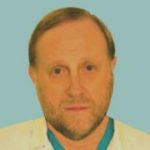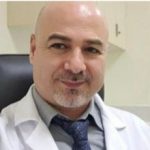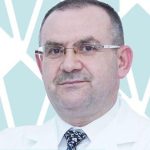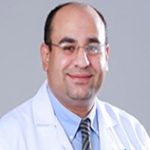Event Date
March 20-21, 2025
Venue
Rome, Italy
– Previous Conference Performers / Professionals From Around The Globe –

Ahmed Ali
- Diyala University, Iraq

Aikaterini Ziaka
- Physio4you, Greece

AMR Hawal
- Professor, Prime Healthcare Group UAE

Antonio Steardo
- University of Salerno, Italy

Ashraf Lotfy Fayed
- ENT Military Hospital, Egypt

Aspazija Sofijanova
- Director of Pediatric Clinic, Macedonia

Brandon P. Lucke-Wold
- University of Florida, Florida

Brankica Vasiljevic
- NMC Royal Hospital, UAE

Bruce Ogden
- Director of Operations US Foods USA

Cornelia Beyer
- University of Hull, UK

Gabriela Barsov
- Macedonia

Grazzia Rey
- University of the Republic, Uruguay

Hadi Salloum
- UAE

Heather Carmello
- University of Rochester, USA

Howard Weber
- Penn State Hershey Childrens Hospital, USA

Ilknur AydınAvci
- Turkey

Irene Hamrick
- University of Cincinnati, USA

José De Jesús Curiel Valdés
- Clínical Patology, Mexico

Lloyd L. Tran
- Biomed Industries, USA

Luca Roncati
- University Hospital of Modena, Italy

Mahmoud Al Cheikh Ahmad
- UAE

Maria Braoudaki
- University of Hertfordshire , United Kingdom

Marina F Gubkina
- National Research Medical University, Russia

Muhamad Akhal
- UAE

Peter Krcho
- Pavol Jozef safarik University, Slovakia

Pinghong Zhou
- Fudan University, China

Raffaele Pilla
- University of Salerno, Italy

Ruut Veenhoven
- Seres Therapeutics, United States

Said Moustafa M. El-deib
- Yas Clinic Khalifa City UAE

Sajidxa Marino
- Central University of Venezuela, Venezuela

Sajidxa Marino
- Central University of Venezuela, Venezuela

Sam Vaknin
- Southern Federal University, Russia

Sandra Vélez Candelario
- Catholic University of Puerto Rico, USA

Simon Treissman
- Royal Inland Hospital, Canada

Taylor Bean
- Salmon Arm, Canada

Thiago Hoesker
- Neuro surgeon , Brazil

Tracy Roake
- Danat Al Emarat Hospital, UAE

Vladimir Zajac
- Cancer Research Institute, Slovakia

William J Rowe
- Specialist in Medicine, USA

Yu You Liu
- National Chung Hsing University, Taiwan
Media Partners/Collaborator
A huge thanks to all our amazing partners. We couldn’t have a conference without you!










Sponsors/Exhibitors
A huge thanks to all our amazing partners. We couldn’t have a conference without you!


Surgery conference 2025
The 15th International Conference on Surgery and Surgeons will be held on March 20-21, 2025, in the historic city of Rome, Italy. This prominent event aims to bring together a diverse group of healthcare professionals, including surgeons, researchers, and industry leaders, to discuss the latest advancements, techniques, and best practices in the field of surgery. The conference serves as a vital platform for sharing knowledge, fostering collaboration, and exploring innovative solutions to improve surgical outcomes.
Sessions and Tracks
1. Keynote Addresses
Description: Esteemed leaders in surgery will present keynote speeches covering groundbreaking research, innovative surgical practices, and future directions in the field.
2. Innovations in Minimally Invasive Surgery
Description: Explore the latest advancements in minimally invasive surgical techniques, including laparoscopic and robotic-assisted surgeries, and their impact on patient recovery and outcomes.
3. Surgical Oncology Updates
Description: Discuss current trends in surgical oncology, including new techniques for tumor resection, the role of immunotherapy, and multidisciplinary approaches to cancer care.
4. Trauma and Emergency Surgery
Description: Address the challenges in trauma surgery, including rapid assessment, surgical techniques, and management of complications in emergency settings.
5. Orthopedic Surgery Innovations
Description: Examine recent advancements in orthopedic surgical techniques, including joint replacement, arthroscopy, and the use of biologics in treatment.
6. Bariatric Surgery: Trends and Outcomes
Description: Discuss the latest techniques in bariatric surgery, patient selection criteria, and the long-term outcomes and complications associated with weight loss surgeries.
7. Neurosurgery Advances
Description: Delve into the latest developments in neurosurgery, including minimally invasive techniques, neuro-oncology, and advancements in neurostimulation therapies.
8. Anesthesia and Pain Management
Description: Focus on recent advancements in anesthesia practices and pain management strategies to enhance patient safety and comfort during and after surgery.
9. Surgical Education and Training
Description: Explore innovative approaches to surgical education, including simulation training, mentorship programs, and the integration of technology in surgical curricula.
10. Patient Safety and Quality Improvement
Description: Discuss strategies for enhancing patient safety in surgical settings, including infection prevention, risk management, and quality improvement initiatives.
11. Global Health and Surgery
Description: Address the challenges and opportunities in global surgical health, including access to care, training programs, and partnerships between countries to improve surgical outcomes.
12. Surgical Techniques in Transplantation
Description: Examine the latest advancements in surgical techniques for organ transplantation, including donor selection, surgical procedures, and post-operative care.
13. Ethics and Professionalism in Surgery
Description: Engage in discussions on ethical considerations in surgical practice, including informed consent, patient confidentiality, and professional conduct.
14. Emerging Technologies in Surgery
Description: Explore how emerging technologies, including artificial intelligence and machine learning, are shaping the future of surgical practice and patient care.
15. Future Directions in Surgical Research
Description: Conclude the conference with discussions on the future of surgical research, including trends, funding opportunities, and the role of collaboration in advancing surgical science.
Market Analysis
Current Trends in Surgery
The global surgery market is witnessing significant growth driven by advancements in technology, rising prevalence of chronic diseases, and an increasing focus on surgical innovations.
- Technological Advancements: The integration of robotics, telemedicine, and minimally invasive techniques is revolutionizing surgical practices and enhancing patient outcomes.
- Increased Demand for Surgical Procedures: As populations age and chronic diseases rise, the demand for surgical interventions is increasing, driving growth in the surgical market.
- Emphasis on Patient-Centered Care: There is a growing focus on patient-centered approaches, with an emphasis on improving patient experience, safety, and outcomes.
Market Size and Growth
The global surgical market is projected to grow significantly in the coming years, driven by advancements in surgical techniques, increasing demand for surgical services, and rising awareness of the importance of surgical care.
Competitive Landscape
The surgical market is characterized by a competitive landscape with numerous companies, research institutions, and healthcare providers focused on developing innovative surgical products and solutions.
Why Attend?
- 1. Cutting-Edge Research and Insights
- Attendees will gain access to the latest research findings, emerging technologies, and innovative surgical techniques that are transforming the field.
- 2. Networking Opportunities
- Connect with a diverse array of professionals, from seasoned surgeons to emerging researchers, to foster collaborations and share experiences that can enhance practice.
- 3. Expert Speakers
- Hear from world-renowned keynote speakers and panelists who will share their expertise and insights on current trends and future directions in surgery.
- 4. Interactive Workshops
- Participate in hands-on workshops that will provide practical training on the latest surgical techniques, tools, and technologies.
- 5. Global Perspectives
- Engage with international experts and practitioners, sharing best practices and experiences to advance surgical care on a global scale.
Who Will Attend?
The conference is expected to attract a wide range of attendees, including:
- Surgeons: Practicing surgeons specializing in various disciplines looking to enhance their skills and knowledge.
- Researchers: Academics and researchers dedicated to advancing surgical science through innovative studies and clinical trials.
- Surgical Residents and Trainees: Emerging professionals eager to learn from experienced surgeons and gain insights into advanced surgical practices.
- Industry Representatives: Professionals from medical device and pharmaceutical companies showcasing the latest innovations and technologies.
- Healthcare Administrators: Leaders in healthcare management interested in understanding the latest trends in surgical care and patient outcomes.
About the Venue
The conference will be held in Rome, Italy, a city steeped in history, culture, and contributions to medical science.
Venue Details
- Location: The conference will take place at a centrally located venue, easily accessible from major transport links, making it convenient for attendees.
- Facilities: The venue will feature state-of-the-art facilities, including spacious auditoriums for keynote sessions, breakout rooms for workshops, and exhibition spaces for industry representatives.
- Accommodations: Participants will have access to a variety of accommodations, from luxury hotels to budget-friendly options, ensuring comfort during their stay.
- Cultural Experience: Attendees can explore Rome’s historic landmarks, museums, and renowned cuisine, enriching their experience beyond the conference.
The 15th International Conference on Surgery and Surgeons promises to be an exceptional event that will enhance knowledge, foster collaboration, and inspire innovation in the field of surgery. By attending, participants will gain valuable insights and engage in meaningful discussions that will shape the future of surgical practice and patient care. Join us in Rome for an unforgettable experience that will contribute to advancing surgical practices and improving patient outcomes worldwide.
– Tracks & Key Topics –
- Surgery
- General Surgery
- Pediatric Surgery
- Surgical Oncology
- Surgical Pathology
- Acute Care Surgery
- Advancements In Surgery
- Vascular Surgery
- Anesthesiology and Perioperative Care
- Podiatric Surgery
- Bariatric Surgery
- Breast Surgery
- Cardiac Surgery
- Colorectal Surgery
- Dermatologic & Cosmetic Surgery
- Emergency Surgery
- Microsurgery
- Endocrine Surgery
- Craniofacial Surgery & Plastic Surgery
- Gastroenterological Surgery
- Gender Confirmation Surgery
- Hand Surgery
- Laparoscopic And Endoscopic Surgery
- Neuro Surgery
- Robotic Surgery
- Thoracic Surgery
- Burn Surgery
- Trauma Surgery
- Orthopaedic Surgery
- Otorinolaryngology
- Ocular Surgery
- C-Section
- Gynecology Surgery
- Complex Spine Surgery
- Dental Surgery
- Genito Urinary Surgery
- Radiology Surgery
- Abdominal Surgery
- Fetal Surgery
- Pancreatectomy
- Surgical Techniques
- Current Problems In Surgery

